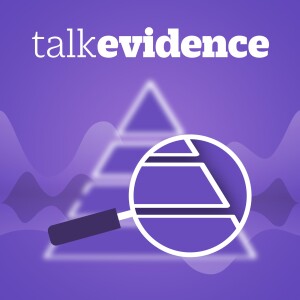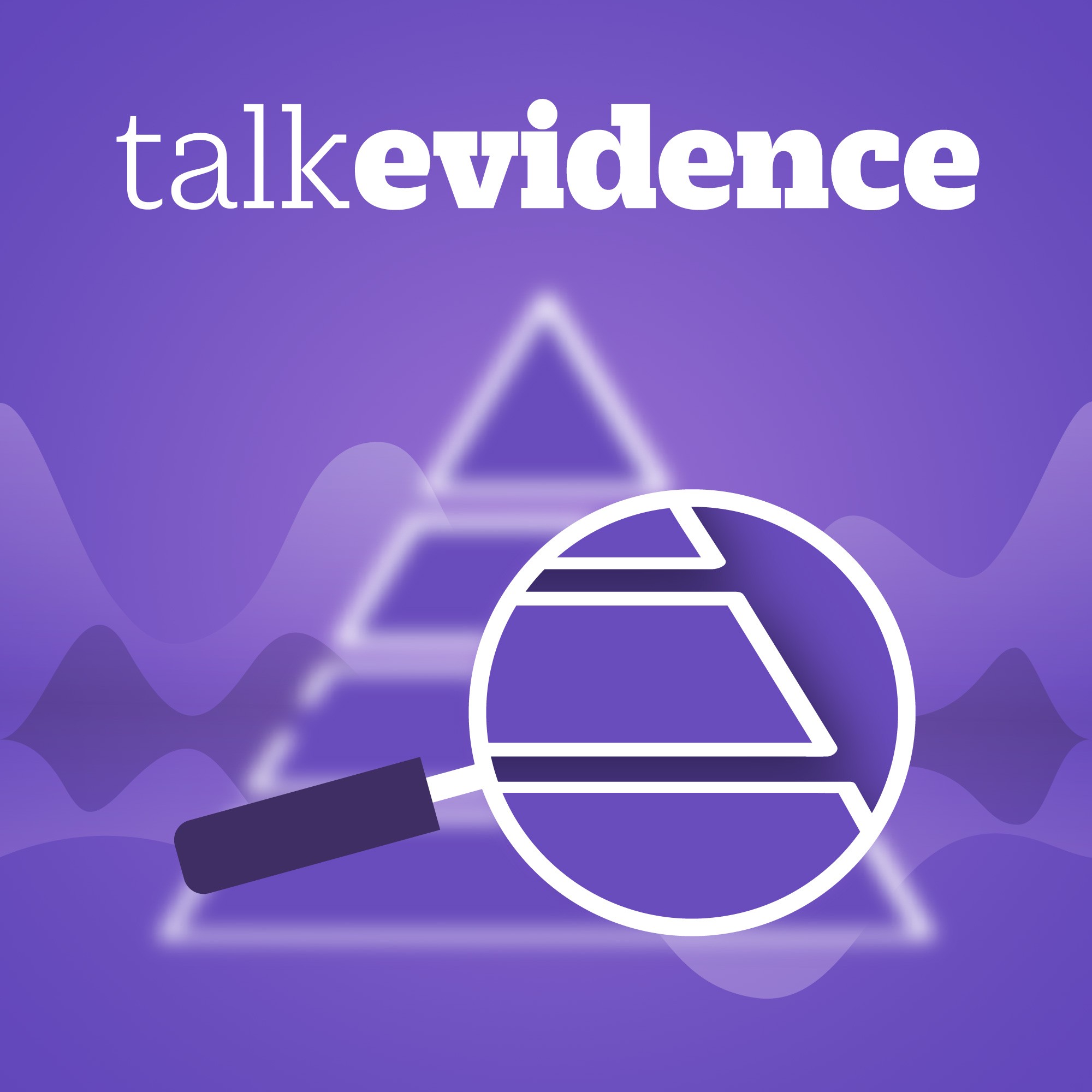Episodes

Friday Mar 27, 2020
Friday Mar 27, 2020
For the next few months Talk Evidence is going to focus on the new corona virus pandemic. There is an enormous amount of uncertainty about the disease, what the symptoms are, fatality rate, treatment options, things we shouldn't be doing. We're going to try to get away from the headlines and talk about what we need to know - to hopefully give you some insight into these issues. This week 3.50 - There is a lot of confusion around symptoms, we hear what Carl's review of the case studies has found, and why he thinks fever and persistent dry cough may not be a sign of all cases. 10.30 - where are we with research into antiviral treatment 17.30 - John Ioannidis has expressed concerns about the quality data used in modelling and therefore our pandemic response. We hear what his concerns are, and what needs to be done to answer them.
29.10 - Iceland is the only country attempting to do population level screening, we hear from Kári Stefánsson, CEO of deCODE genetics which is working with the Icelandic government to allow everyone to access testing for the virus.

Friday Mar 20, 2020
Talk Evidence - testing under the microscope and opioid prescription
Friday Mar 20, 2020
Friday Mar 20, 2020
This edition of talk evidence was recorded before the big increase in covid-19 infections in the UK, and then delayed by some self isolation. We'll be back with more evidence on the pandemic very soon. As always Duncan Jarvies is joined by Helen Macdonald (resting GP and editor at The BMJ) and Carl Heneghan (active GP, director of Oxford University’s CEBM and editor of BMJ Evidence). in this episode (1.01) Helen talks about variation in prescription of opioids - do 1% of clinician really prescribe the vast majority of the drug? (8.45) Carl tells us that its time papers (in this case a lung screening one) really present absolute numbers. (17.30) Carl explains how a spoonfull (less) of salt helps the blood pressure go down (21.25) Helen puts test results under a microscope, and finds out that they may vary. (33.20) What do conflicts of interest in tanning papers mean for wider science? (48.05) Carl has a "super-rant" about smartphone apps for skin cancer - and a sensitivity of 0. Reading list: Opioid prescribing patterns among medical providers in the United States, 2003-17: retrospective, observational study https://www.bmj.com/content/368/bmj.l6968 Reduced Lung-Cancer Mortality with Volume CT Screening in a Randomized Trial https://www.nejm.org/doi/full/10.1056/NEJMoa1911793 Effect of dose and duration of reduction in dietary sodium on blood pressure levels https://www.bmj.com/content/368/bmj.m315 Your results may vary: the imprecision of medical measurements https://www.bmj.com/content/368/bmj.m149 Association between financial links to indoor tanning industry and conclusions of published studies on indoor tanning: systematic review https://www.bmj.com/content/368/bmj.m7 Algorithm based smartphone apps to assess risk of skin cancer in adults: systematic review of diagnostic accuracy studies
https://www.bmj.com/content/368/bmj.m127

Monday Feb 17, 2020
Talk Evidence - Building an evidence base for covid-19
Monday Feb 17, 2020
Monday Feb 17, 2020
We're taking a break from the usual Talk Evidence to focus on the new corona virus that has emerged in China. With a brand new disease, we have to build our evidence base from scratch - basic virology, epidemiology, pathogenicity, transmissibility, and ultimately treatment are all unknowns. In this episode of Talk Evidence, we're trying to get away from the headlines and talk about what we need to know - to hopefully give you some insight into these issues. (8.00) Peter Openshaw, professor of experimental medicine at Imperial College London, talks to us about the pathogenicity of covid-19 (17.30) Wendy Barclay, head of the Department of Infectious Disease at Imperial College London, describes what can change the R0 of a viral disease. (20.50) Raina MacIntyre, professor of biosecurity at the Kirby Institute at the University of New South Wales, talks to us about how effective masks are at preventing spread of viruses. (30.00) We discuss treatment options in the face of massive uncertainty.
To read more about covid-19 and to keep up to date with the disease visit https://www.bmj.com/coronavirus where all of the information on the disease if freely available.

Wednesday Jan 22, 2020
Talk Evidence - Sepsis, talc and blindsided by blinding
Wednesday Jan 22, 2020
Wednesday Jan 22, 2020
Welcome to the festive talk evidence, giving you a little EBM to take you into the new year. As always Duncan Jarvies is joined by Helen Macdonald (resting GP and editor at The BMJ) and Carl Heneghan (active GP, director of Oxford University’s CEBM and editor of BMJ Evidence)* This month: (1.20) Carl tells us about new research on treating sepsis with steroids that might inform practice. (4.58)Proscribing of prophylactic PPIs or H2-blockers for intensive care patients. (11.00) Carl wonders if we can actually rule out an increased risk of ovarian cancer with the use of talc. (17.46) Helen drops and EBM bombshell - is all the work needed to blind participants in a double blind randomised control trial actually worth it? (33.00) Helen is annoyed about a press release from the department of health, and kicks of 2020 by stealing Carl's rant spot. Reading list: Corticosteroids for Treating Sepsis in Children and Adults https://pubmed.ncbi.nlm.nih.gov/31808551-corticosteroids-for-treating-sepsis-in-children-and-adults/?dopt=Abstract Gastrointestinal bleeding prophylaxis for critically ill patients: a clinical practice guideline https://www.bmj.com/content/368/bmj.l6722 Association of Powder Use in the Genital Area With Risk of Ovarian Cancer. https://www.ncbi.nlm.nih.gov/pubmed/31910280 Blinding Fool’s gold? Why blinded trials are not always best https://www.bmj.com/content/368/bmj.l6228 Impact of blinding on estimated treatment effects in randomised clinical trials https://www.bmj.com/content/368/bmj.l6802
*quick note to say sorry about the sound quality on Duncan's microphone - we had a technical glitch (he was left alone to record).

Tuesday Dec 31, 2019
Talk Xmas Evidence
Tuesday Dec 31, 2019
Tuesday Dec 31, 2019
Welcome to the festive talk evidence, giving you a little EBM to take you into the new year. As always Duncan Jarvies is joined by Helen Macdonald (resting GP and editor at The BMJ) and Carl Heneghan (active GP, director of Oxford University’s CEBM and editor of BMJ Evidence) This month: (2.00) Helen look back at a Christmas article, which investigates a very common superstition in hospitals. (7.55) Carl has his pick of the top 100 altimetric most influential papers of the year. (12.40) We find out all about the preventing overdiagnosis conference which happened earlier in December. (34.15) Helen has her annual rant about misogeny in medicine. Reading list: Q fever—the superstition of avoiding the word “quiet” as a coping mechanism https://www.bmj.com/content/367/bmj.l6446 Altimetric Top 100 https://www.altmetric.com/top100/2019/ Fiona Godlee’s keynote at Preventing Overdiagnosis https://www.preventingoverdiagnosis.net/ Gender differences in how scientists present the importance of their research: observational study
https://www.bmj.com/content/367/bmj.l6573

Monday Nov 11, 2019
Monday Nov 11, 2019
Talk Evidence is back, with your monthly take on the world of EBM with Duncan Jarvies and GPs Carl Heneghan (also director for the Centre of Evidence Based Medicine at the University of Oxford) and Helen Macdonald (also The BMJ's UK research Editor). This month Helen talks about the messy business of colon cancer screening - which modality is best, and in what population is it actually effective (1.40) Carl talks about how the Netherlands did the right research at the right time to stop a new pregnancy scan before it became routine (10.35) The Rant: acronyms in research papers (17.45) Mini Rant: politicisation of the NHS, and Carl pitches for yet another job (25.15) Research in the news has talked about the importance of when drugs are taken, to maximise efficacy. Melvin Lobo, cardiologist specialising in hypertension joins us to explain that research and why we seem to have forgotten about that effect. Reading list: Colorectal cancer screening with faecal immunochemical testing, sigmoidoscopy or colonoscopy: a clinical practice guideline https://www.bmj.com/content/367/bmj.l5515 Effectiveness of routine third trimester ultrasonography to reduce adverse perinatal outcomes in low risk pregnancy (the IRIS study): nationwide, pragmatic, multicentre, stepped wedge cluster randomised trial https://www.bmj.com/content/367/bmj.l5517 Bedtime hypertension treatment improves cardiovascular risk reduction: the Hygia Chronotherapy Trial
https://academic.oup.com/eurheartj/advance-article/doi/10.1093/eurheartj/ehz754/5602478

Friday Oct 04, 2019
Talk Evidence - eating less, drinking less, drug approval data
Friday Oct 04, 2019
Friday Oct 04, 2019
Talk Evidence is back, with your monthly take on the world of EBM with Duncan Jarvies and GPs Carl Heneghan (also director for the Centre of Evidence Based Medicine at the University of Oxford) and Helen Macdonald (also The BMJ's UK research Editor). This month Carl talks about evidence that restricting your diet might improve health at a population level (1.50) Helen talks about the data on a drop in alcohol consumption amongst Scots (7.04) A listener questions the team about their take on Tramadol (13.45) Helen talks about the problems with the trials we use to regulate drugs (18.00) And Carl explains why drug shortages aren't just a Brexit problem (31.30) Reading list: two years of calorie restriction and cardiometabolic risk (CALERIE): exploratory outcomes of a multicentre, phase 2, randomised controlled trial https://www.sciencedirect.com/science/article/pii/S2213858719301512?via%3Dihub Immediate impact of minimum unit pricing on alcohol purchases in Scotland: controlled interrupted time series analysis for 2015-18 https://www.bmj.com/content/366/bmj.l5274 Design characteristics, risk of bias, and reporting of randomised controlled trials supporting approvals of cancer drugs by European Medicines Agency, 2014-16: cross sectional analysis https://www.bmj.com/content/366/bmj.l5221 Crisis in the supply of medicines
https://www.bmj.com/content/367/bmj.l5841

Monday Sep 23, 2019
Monday Sep 23, 2019
Helen talks about new research on prevention of recurrent VTE - and Carl things the evidence goes further, and we can extend prophylaxis for a year. 13.00 - CRP testing for antibiotic prescription in COPD exacerbations, should we start doing it in primary care settings - and what will that mean. We also hear from Chris Butler, one of the trialists, who explains why being very clear about what you actually want to measure is important in study design. 26.50 - Carl wants you to read the Chief Medical Officer’s report, and we hear from Cathrine Falconer, who edited it, about how they put the recommendations together. 32.50 - Helen thinks that a new consultation from the UK government is collecting evidence in an unsystematic way, and that it’s an opportunity for listeners to submit some good evidence. Reading list: Long term risk of symptomatic recurrent venous thromboembolism after discontinuation of anticoagulant treatment for first unprovoked venous thromboembolism event https://www.bmj.com/content/366/bmj.l4363 C-Reactive Protein Testing to Guide Antibiotic Prescribing for COPD Exacerbations https://www.nejm.org/doi/10.1056/NEJMoa1803185 Chief Medical Officer annual report 2019: partnering for progress https://www.gov.uk/government/publications/chief-medical-officer-annual-report-2019-partnering-for-progress Advancing our health: prevention in the 2020s – consultation document
https://www.gov.uk/government/consultations/advancing-our-health-prevention-in-the-2020s/advancing-our-health-prevention-in-the-2020s-consultation-document

